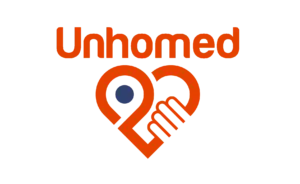Housing Bubble
Description
Title: Understanding the Housing Bubble: Definition, Description, Objectives, Mechanisms, Benefits, Challenges, and Examples
Term: Housing Bubble
Definition: A temporary condition characterized by high demand, low supply, and speculative growth in property prices, which can lead to a sudden market crash and increased risk of homelessness for those who cannot afford rising housing costs.
Description:
A housing bubble is an economic occurrence that involves a significant increase in housing prices due to increased demand, speculation, and exuberant behavior. Seasoned real estate investors might identify a housing bubble by observing home pricing trends over the years and comparing it to average income. When a housing bubble bursts, prices plummet, potentially leaving homeowners with a property that is worth less than their mortgage.
Objectives:
- Understand the causes and effects of housing bubbles.
- Improve forecasting abilities to prevent future housing bubbles.
- Study housing bubbles to develop mechanisms that can cope with housing market crashes.
Mechanisms:
- Speculation: A major factor contributing to a housing bubble is the real estate speculation or flipping where individuals buy properties expecting the price to rise.
- Availability of credit: A surge in the availability of credit can often fuel a housing bubble.
- Psychological factors: The 'fear of missing out' can contribute significantly to the rapid growth of a housing bubble by making potential buyers believe they must purchase before prices increase further.
Benefits:
- Quick Capital Gain: If timed right, there are opportunities for substantial capital gains in a real estate bubble.
- Economic Boost: During a bubble, the economy might see a momentary boost due to increased housing market activity.
Challenges:
- Increased Risk of Homelessness: Bubbles can lead to a sudden market crash and increased risk of homelessness for those who cannot afford rising housing costs.
- Negative Effect on Economy: A burst bubble can lead to severe economic recession.
- Financial Instability: It can lead to instability for lenders and impact the wider economy.
Examples:
1. The U.S. Housing Bubble of 2006: This was a classic example of a housing bubble where due to speculative activities, the house prices skyrocketed, and the bubble burst in 2007 causing a severe economic recession.
2. Japan's Asset Price Bubble in the 1980s: This bubble emerged in late 1980s where the prices of real estate and stock market significantly inflated. It caused severe long-term effects on the Japanese economy.
Further Reading:
1. https://www.investopedia.com/terms/h/housingbubble.asp
2. https://www.thebalance.com/what-is-a-bubble-3305952
3. https://www.huffpost.com/entry/housing-bubble_b_2717801- This piece examines the reasons behind the 2008 housing bubble in the U.S. and lessons learned from it.



